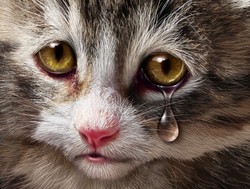
Recently, a video of intentionally knocking down a running horse while filming the KBS1 epic drama Taejong Lee Bang-won was released to the media. The production team tied a rope to the horse's ankle to produce the fall scene, and after the horse began to run, they grabbed the rope and pulled it down. In the end, the horse died a week after the filming date due to its injuries caused by this stunt. Although there was a lot of controversy over animal abuse about the video, it has been pointed out that punishment seems difficult because the punishment criteria for violations of the Animal Protection Act are concentrated on "intentionality." Even the legal basis for protecting animals at the filming site turned out to be limited. It is necessary to prepare measures to protect animal rights on the set.
Since 2020, the domestic animal protection organization "Kara" has distributed ‘animal media guidelines’ created by referring to overseas filming guidelines. The guidelines state that "media should not expose animals to dangerous situations without safety devices and should not deliberately threaten living animals for unnecessary and provocative images." Article 8 of the Animal Protection Act prohibits animal abuse. Article 5, No. 4 also prohibits the act of renting animals for profit-making purposes. There are guidelines and legal grounds for banning animal abuse, but they are not observed at domestic filming sites. This is because "profit-making purposes" specified in Article 5, No. 4 have exceptions for the purpose of filming, experience, education, etc. Guidelines are also just for reference and not legally binding, making it difficult to have any power. To solve this problem, regulations must be enacted under the Animal Protection Act, such as establishing provisions related to animal protection in filming sites. In addition, even if animal abuse occurs, it is difficult to punish the perpetrator because the punishment standard under the Animal Protection Act focuses on "intentionality." Punishment of perpetrators is more difficult because negligence offenders are not punished, but only intentional offenders. In fact, Han Jae-eon, a lawyer at the Korean Animal Welfare Association, pointed out, "There were many cases where proving the perpetrator’s intentionality failed because ‘did the perpetrator have any willful negligence’ becomes an issue in the case.” Experts predict that the Taejong Lee Bang-won case mentioned above will also be difficult to punish due to a lack of proof of intention. Eventually, the Animal Protection Act should be revised to expand the scope of punishment so that negligence can be punished in animal abuse.
Animal lives are also important, so humans must respect their lives and seek coexistence with them. However, the legal basis for prohibiting animal abuse from occurring at the current filming site is not clear, and the punishment is also insufficient. According to the Korea Times on January 26th, film director Yim Soon-rye said, "The mindset of the production team that sees animals as props or consumables should change. […] Actors should also take this opportunity to declare that they would not work with such a director, and it is important to form a consciousness of animal rights." Animals should be protected, and animal rights consciousness should be improved through legislation to prevent the dangerous use of animals in filming.

